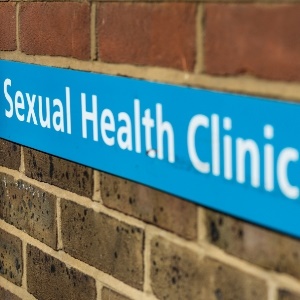
All communities will benefit from lowering HIV infection rates through the economic growth that will accompany the reduction in new HIV infections. That’s the view of Marina Rifkin, an epidemiologist working as the Public Health Specialist at CareWorks, an HIV management organisation.
Job losses and economic decline in small-town South Africa are well-documented. In some areas, the unemployment rate is over 60%. South Africa’s unemployment rate has increased to 26.4%, its highest level since 2003; and 45.5% of South African households continue to receive at least one social grant.
Ms Rifkin says there are many contributing factors and no instant cure. “Any significant reduction in new HIV infections will have knock-on economic benefits across all sectors, including rural areas and small towns.
“A key to this,” says Ms Rifkin, “is the widespread roll-out of voluntary medical male circumcision (VMMC), which aims to circumcise 80% of males between the ages of 15 to 49.” That translates to 4.3 million MMCs, by the end of 2016, which Ms Rifkin says could avert more than one million new HIV infections by 2025.
“This could potentially save nearly R70 billion in averted HIV treatment costs. It’s money which can rather be invested in education, infrastructure and improved care for people who are already living with HIV. It would have significant benefits to labour-intensive sectors such as agriculture and agri-processing,” explains Ms Rifkin.
“The million lives saved obviously provides a major humanitarian benefit as families remain intact, but it also provides an economic advantage as the workforce is not depleted. The R70 billion from saved HIV treatment costs has impressive buying power – we could build nearly 700 000 Reconstruction and Development Programme (RDP) houses, or 1 541 state-of-the-art schools, or even 281 Nkandlas,”she says.
Ms Rifkin adds that while the National Department of Health’s successful ART programme has slowed AIDS deaths, it’s just the start. “A comprehensive rollout of MMC would complement the success of the ART programme by drastically reducing the number of new infections; in the same way that the ART programme has lowered the number of HIV positive people who develop AIDS.”
“Obviously that would benefit our nation in terms of lives saved, and families and communities would remain intact, but the potential economic benefits would be massive. In 2000, the bank ING Barings suggested that HIV/AIDS would cut South Africa’s annual growth rate by 0.3 and 0.4 percentage points during 2006 to 2010 and 2011 to 2015 respectively. MMC could help reduce the burden of new HIV infections enough to give the economy a real boost.”
“SA has made excellent progress inasmuch as HIV can now be managed as a chronic condition through antiretroviral treatment (ART), but that comes at a massive cost. By reducing the number of new infections – and thus the number of people requiring ART– South Africa could free up billions for social development that addresses poverty, inequality and unemployment,” she explains.
That’s why it’s important that workforces – the engine of economy growth – protect themselves, their families and ultimately, the economy from HIV. This is where MMC is crucial, Ms Rifkin adds: it’s a once-off, 20 minute procedure that reduces a man’s risk of HIV infection by up to 60%.
MMC is the lynchpin of a combination prevention approach, including correct and consistent condom use, regular testing, treatment of STIs, reducing the number of sexual partners and delaying sexual debut.
“None of these measures offers 100% protection, but used in concert they offer the closest we have to an HIV vaccine. If enough men have MMC and follow the combination of prevention measures, SA could see a collapse in new infections in the next few years and an AIDS-free generation within decades.”
MMC also helps prevent other STIs – such as syphilis, genital warts and herpes – in men and women. MMC also reduces the risk of penile cancer and it reduces a circumcised male’s partners’ risk of getting HPV and, as a result, cervical cancer. So MMC has a health dividend beyond HIV and as a result must be implemented energetically.
“MMC doesn’t require chronic medication, so it’s a very cost-effective measure. We must at all costs avoid the notion that ‘I can relax about HIV prevention because if I’m infected I’ll just take ART.’ As successful as the ART programme has been, it’s important to assist those who are HIV negative stay HIV negative, and MMC for you or your partner is an indispensable component of that,” Ms Rifkin concludes.
To find out where you, or a friend, can undergo free MMC: send a free ‘please call me’ to 0606 800 800 and a counsellor will get back to you. For more information about MMC visit the MMC media and information hub at www.mmcinfo.co.za.
Read more:
Is there or isn't there a shortage of ARV's in South Africa?
Half of Khayelitsha men don't know their HIV status
Why South African youth believe women are more vulnerable to HIV




 Publications
Publications
 Partners
Partners










